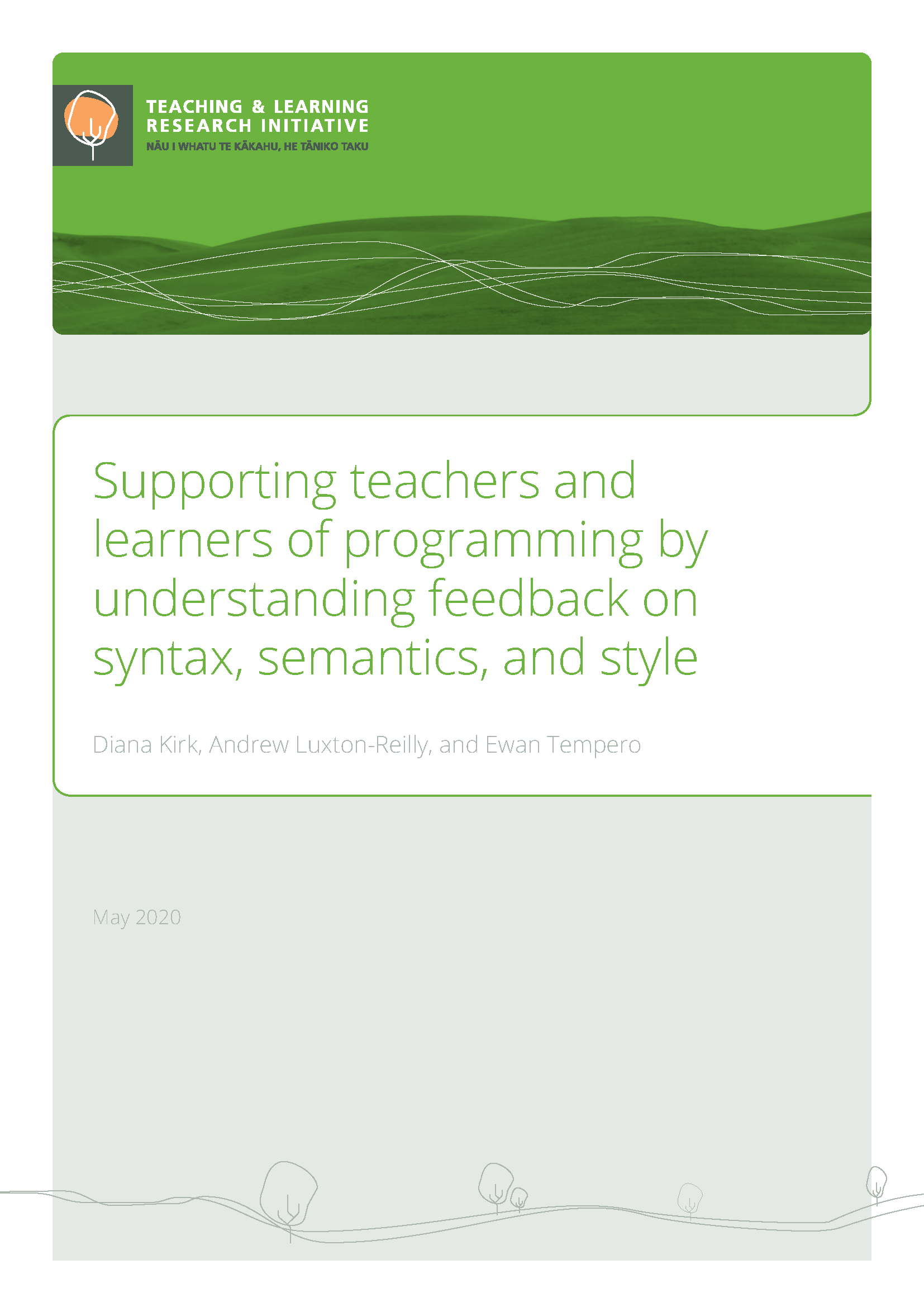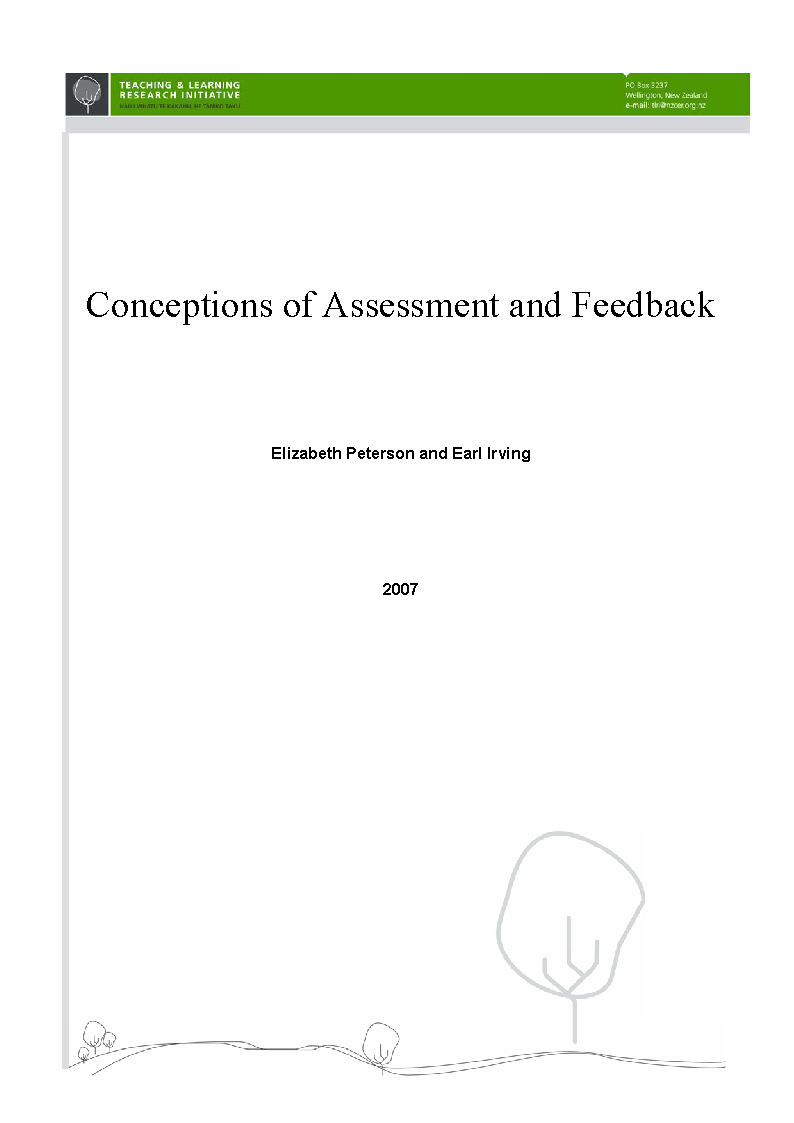
Supporting teachers and learners of programming by understanding feedback on syntax, semantics and style
Introduction New Zealand has a shortage of skilled workers in information technology (IT). Skills relating to computer programming (e.g., software engineer, applications programmer, software tester, web developer) all appear on the 2019 Long Term Skill Shortage List published by Immigration New Zealand (Immigration New Zealand, 2019). In 2020, Immigration New Zealand reports a continued lack of information and communications technology (ICT) workers in New Zealand (Immigration New Zealand, n.d.). However, New Zealand is competing in a global market facing similar demands. In many parts of the world, demand for computing graduates outstrips supply. Consequently, New Zealand cannot rely on filling its requirements from other countries. We need to develop skilled professionals


